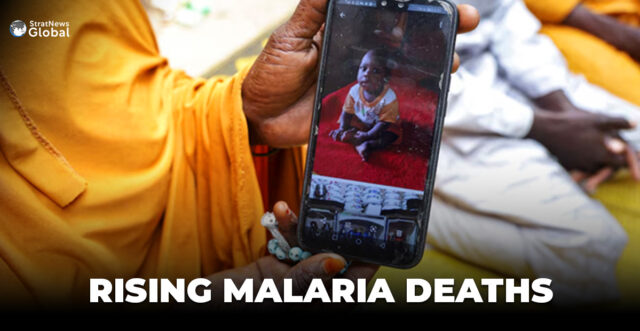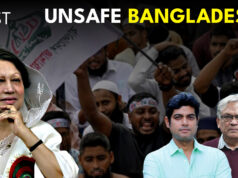The death of nine-month-old Mohamat due to malaria in northern Cameroon after days of fever and delayed care reflects a surge in fatalities linked to the United States’ foreign aid cuts, according to local health officials.
Before the cuts, Mohamat might have been diagnosed earlier by one of more than 2,000 U.S.-funded community health workers who would travel over rough dirt roads to reach the region’s remotest villages.
And at the health centre, he might have been treated with injectable artesunate, a life-saving drug for severe malaria paid for by U.S. funds that is now in short supply. But the centre had none to give out.
Reuters travelled to northern Cameroon – where the U.S. had played a leading role in the malaria response for nearly a decade – to document how the sudden cuts are contributing to delayed malaria diagnoses, inadequate treatment and a growing number of deaths.
This story is based on interviews with more than 20 doctors, nurses, community health workers, residents and former U.S. officials involved in malaria programming.
Mohamat’s father, sorghum and banana farmer Alhadji Madou Goni, is mourning a son he had hoped would one day escape poverty.
“I feel so sad about my loss. I hope no one suffers from this (malaria) again,” Goni, 30, told Reuters as he sat outside his home, his wife next to him holding prayer beads.
“Since there is hardship here, and people don’t have the means, we hope aid comes.”
US Malaria Programme Disrupted
Upon taking office in January, U.S. President Donald Trump paused all foreign aid, including the President’s Malaria Initiative (PMI), launched in 2005 by George W. Bush. The PMI is credited with helping to save 11.7 million lives and prevent 2.1 billion malaria cases.
A limited waiver issued in February allowed life-saving work on malaria to continue, but PMI’s 30 partner countries – most of them in Africa – have reported major disruptions linked to the dissolution of the U.S. Agency for International Development, the main implementer of PMI-funded programmes.
In Cameroon’s Far North region, where Goni lives, the cuts stripped support for PMI-funded community health workers who distributed prevention tools like bed nets and identified serious cases.
PMI funded half – 1,492 out of 2,824 – of all community health workers in the region, said Dr Jean-Pierre Kidwang, coordinator of the regional technical group for malaria control.
The support included a monthly stipend of 15,000 CFA francs ($26), a transport allowance, bicycles and clothing.
Nearly all of the U.S.-funded community health workers are now out of service. Prosper Laurent Messe Fouda, head of planning, monitoring and evaluation at the National Malaria Control Programme, confirmed that 2,105 out of the 2,354 U.S.-funded workers in Cameroon’s Far North and North regions were no longer working.
Malaria Deaths Now Rising
PMI made Cameroon a focus country in 2017, and recorded malaria deaths in Far North dropped from 1,519 in 2020 to 653 in 2024 – but now appear to be rising, Kidwang said.
“With PMI funding, we moved from a mortality rate of 17% to bring the situation down to 8%,” Kidwang said.
“Now, with the September–October peak underway, available trends indicate that fatalities are rising sharply, even though official data has yet to be released,” he said, citing a figure of 15% for the first half of 2025.
“We may get to a point where all the gains against malaria are reversed.”
The Trump administration says it is reforming foreign aid that did not align with its “America First” agenda, and Secretary of State Marco Rubio has said repeatedly that no one has died as a result of the cuts.
Trump has said the U.S. pays disproportionately for foreign aid and wants others to pay more. Between 2010 and 2023, the U.S. contributed an average of 37% of funding for malaria programmes, the World Health Organisation says.
This year, the U.S. has cancelled more than 80% of aid contracts, but said life-saving work, including for malaria, would continue. Yet organisations on the ground and the WHO in April said “critical gaps” remained in the malaria response after the cancellations.
Going forward, Trump’s initial budget request for fiscal year 2026 included a 47% cut to PMI’s budget from the just below $800 million it had hit in recent years, though Congress will have the final say later this year.
The “America First Global Health Strategy” Rubio announced in September stated some commitments to reducing malaria mortality and incidence, but made no mention of PMI or budgets. A State Department spokesperson confirmed to Reuters that the programme would continue.
Anne Linn, former senior community health advisor for PMI, told Reuters that before the January cuts, the programme supported 115,000 community health workers across 30 countries. That all disappeared, she said, although it is unclear how much funding has since resumed and where governments and non-profits have stepped in to fill urgent gaps.
The State Department spokesperson said in the future it would provide support to fight malaria through bilateral agreements with partner countries, and committed to maintaining 100% of current U.S. funding for commodities such as nets and drugs and frontline health workers in fiscal year 2026, before asking governments to co-invest. They gave no details of their current annual budget.
(With inputs from Reuters)





